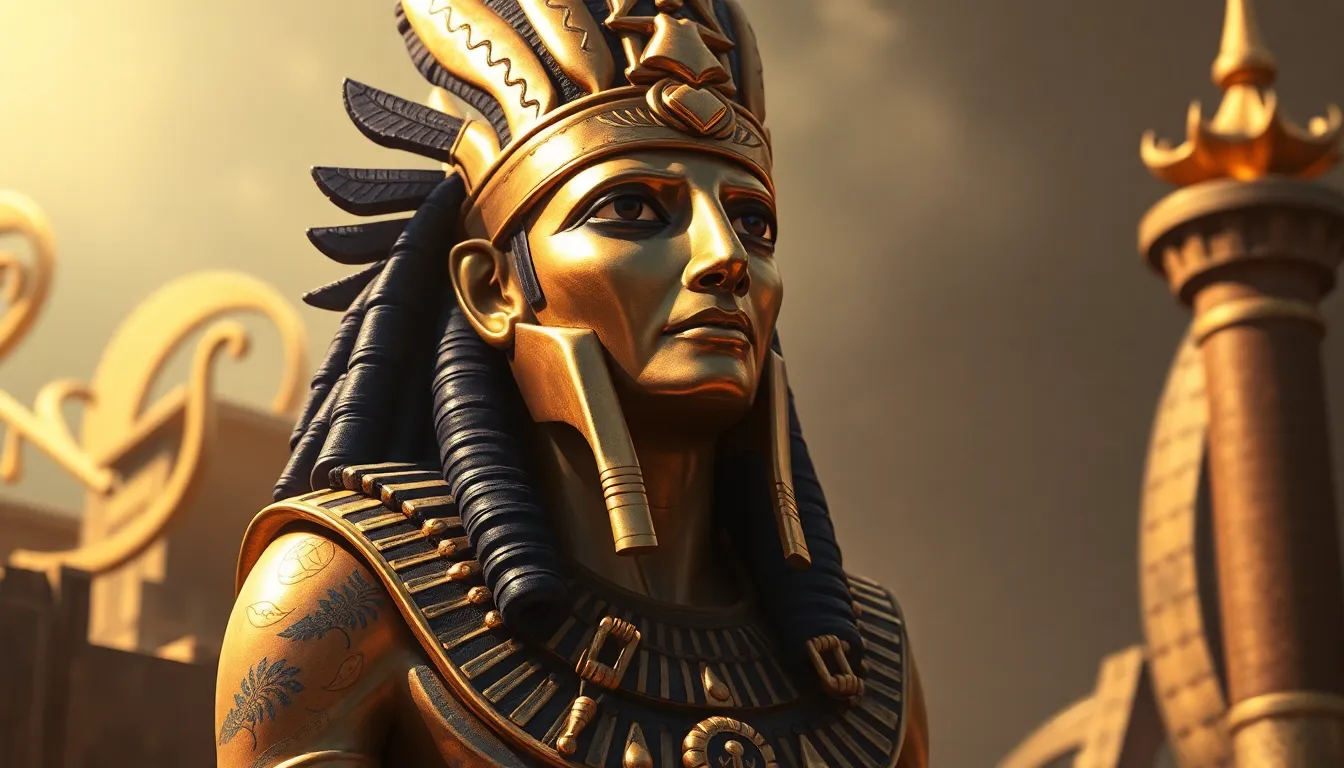The Story of Horus: Avenger of His Father Osiris
I. Introduction
Horus, one of the most significant deities in Egyptian mythology, is often depicted as a falcon-headed god representing kingship, the sky, and protection. His narrative, characterized by themes of vengeance and justice, underscores the ancient Egyptians’ complex beliefs about the afterlife and the cosmos. The story of Horus is not merely a tale of gods battling for power; it encapsulates the cultural and spiritual ethos of ancient Egyptian civilization, providing insights into their understanding of morality, order, and the divine right of kings.
This article aims to explore the profound story of Horus, focusing on his role as the avenger of his father Osiris, the circumstances surrounding his birth, his upbringing, and the ultimate conflict with Set, the god of chaos and disorder.
II. The Background of Osiris and Set
To comprehend the significance of Horus, one must first examine the roles of his father, Osiris, and his uncle, Set. Osiris was revered as the god of the afterlife, agriculture, and resurrection. His mythology is deeply tied to the cycles of the Nile and the promise of rebirth, making him a central figure in the Egyptian belief system.
Set, on the other hand, was the god of chaos, storms, and the desert. His jealousy of Osiris’s popularity and power led him to commit the heinous act of murder. Set lured Osiris into a trap, killing him and dismembering his body, a shocking act that set off a chain of events impacting the gods and humanity alike.
The murder of Osiris was not just a personal tragedy; it symbolized the disruption of order (ma’at) in the universe, emphasizing the importance of balance between chaos and order in Egyptian mythology.
III. The Birth of Horus
Isis, the devoted wife of Osiris, played a crucial role in the birth of Horus. After the death of Osiris, she searched tirelessly for his body to resurrect him. Through her magical powers, she was able to conceive Horus, symbolizing hope and renewal. The circumstances of Horus’s conception and birth were shrouded in mystery, as he was conceived from a dead god, highlighting his divine nature.
Horus is often depicted as a divine child, representing the potential for new life and the continuation of Osiris’s legacy. His birth marked the beginning of a new era, one where he would rise to avenge his father and restore balance to the universe.
IV. Horus’s Early Life and Upbringing
Throughout his early life, Horus was nurtured and protected by his mother, Isis, who went to great lengths to keep him safe from Set. She hid him in the marshes of the Nile, where he could grow away from the reach of his uncle. This period was critical for Horus, allowing him to develop his identity and strength away from the chaos that Set represented.
- Isis’s protective nature: She used her magic to disguise Horus and shield him from danger.
- Education in the marshes: Horus learned survival skills and the ways of the gods.
- Symbolic significance: His childhood shaped Horus into the avenger of Osiris and the rightful heir to the throne.
V. The Conflict Between Horus and Set
As Horus grew, he became increasingly aware of his destiny to reclaim his father’s throne from Set. This led to a series of epic confrontations between the two deities, filled with trials and tribulations. The battles were not merely physical; they involved cunning, strategy, and the support of various gods.
The challenges faced by Horus included:
- Contests of strength and wit against Set.
- Divine interventions that aided or hindered him, showcasing the complex relationships among the gods.
- Symbolic battles representing the struggle between order and chaos.
VI. The Judgment of the Gods
The climax of the conflict came when the gods convened to judge the dispute between Horus and Set. This assembly included powerful deities such as Ra, Thoth, and Isis, who weighed the merits of each side. The judgment was significant in ancient Egyptian belief, as it demonstrated the importance of divine order and justice.
The outcomes of the judgment included:
- Horus being declared the rightful heir to Osiris’s throne.
- Set being punished but not completely vanquished, highlighting the complexity of good and evil in Egyptian thought.
- The restoration of balance (ma’at) in the universe, affirming Horus’s role as a protector of order.
VII. Horus as the Avenger and Ruler
Horus’s victory over Set had profound implications for ancient Egypt. It not only established him as a central figure in the pantheon but also reaffirmed the concept of divine kingship. Pharaohs were seen as the earthly embodiment of Horus, legitimizing their rule and reinforcing the notion that they were divinely sanctioned to lead.
Horus’s symbolism as a protector and avenger became deeply ingrained in Egyptian culture:
- He represented the triumph of good over evil and order over chaos.
- His image was used as an amulet for protection and as a symbol of kingship.
- Horus’s narrative was a reminder of the cyclical nature of life, death, and rebirth.
VIII. Conclusion
The enduring legacy of Horus and Osiris continues to resonate in modern culture, illustrating timeless themes of vengeance, justice, and rebirth. Their story reflects humanity’s quest for meaning in the face of chaos and the struggle to uphold moral order. From ancient temples to contemporary literature and art, the narratives surrounding these deities serve as a powerful reminder of the cultural and spiritual heritage of ancient Egypt.
In reflecting on the story of Horus, one can appreciate its relevance in today’s world, where the concepts of justice, protection, and the fight against chaos remain as significant as ever. Horus stands as a symbol of hope and resilience, embodying the belief that, despite adversity, order can be restored and life can prevail.




